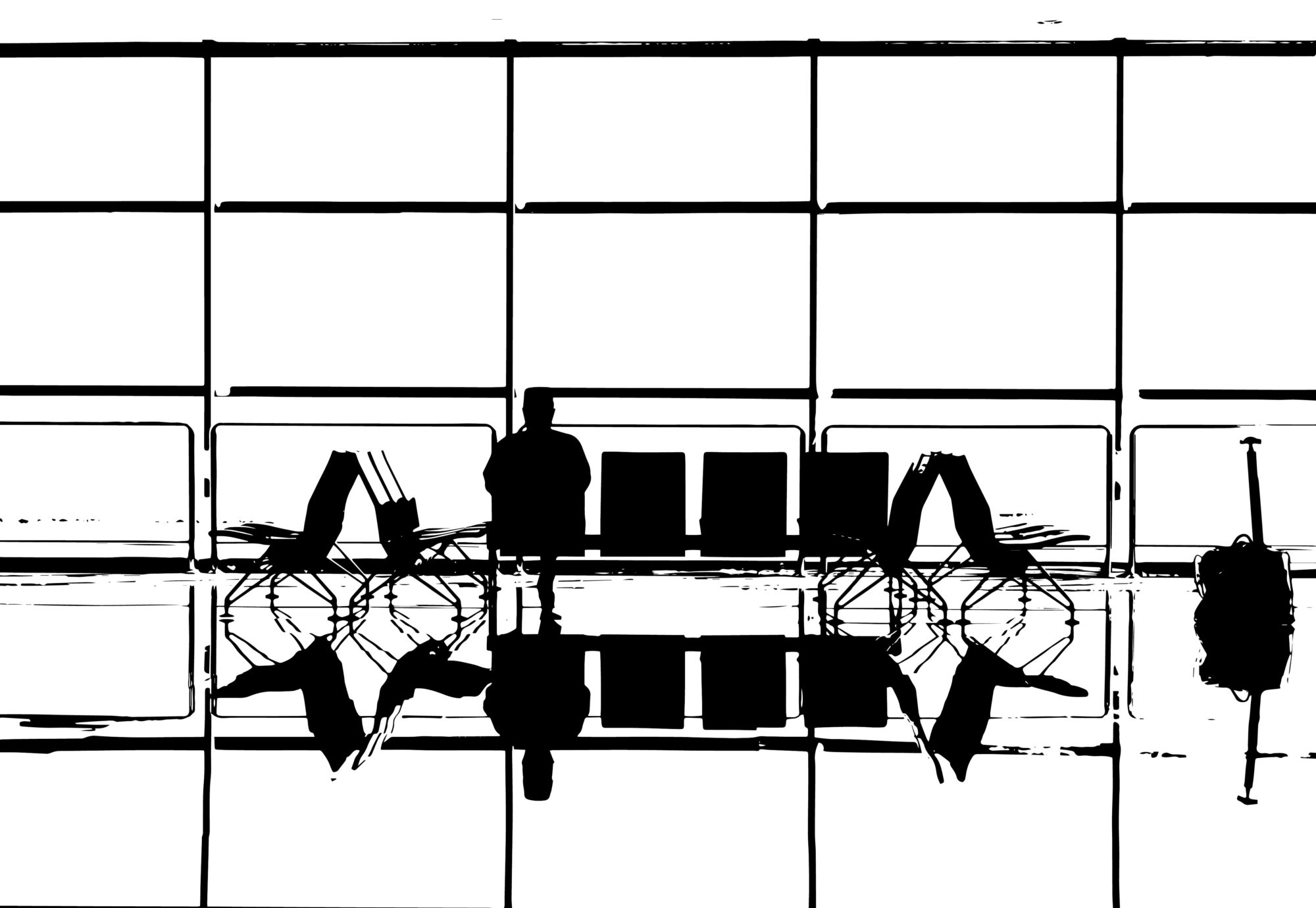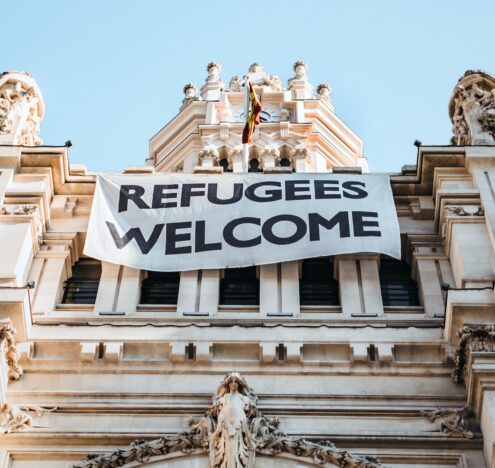The Trump administration has struck a crippling blow to the credibility and strength of the national security profession. As a national security professional, I should have seen it coming. We all should have seen it coming. But even more than that, we have to accept that we’re, at least in part, to blame.
On Monday, the Supreme Court upheld President Trump’s latest iteration of its “travel ban” executive order, with the court’s “traditional deference to the president on foreign affairs and national security” matters being a key justification behind the decision.
Readers will recall the chaotic origins of this third iteration of the policy: a haphazardly generated ban from entry into the United States on individuals from a list of countries that happened to be largely Muslim (with eventual exceptions), all as a means of preventing terrorists or other threats from showing up. While the newest iteration of the policy is narrower and crafted more deliberately than its shot-down predecessors, there is still no question that it originates from the President’s clear desire to limit the number of Muslims entering the United States.
Critics in the national security world immediately raised their eyebrows: there is, after all, no plausible, straight-faced, sane national security justification for the travel ban. The Department of Homeland Security agreed, quietly, to itself. The Secretary of Defense also agreed, before he was Secretary of Defense. A long list of bipartisan national security, intelligence, and military officials agree. If you happen to buy the administration’s take (that it’s not a Muslim ban, or that this ban as construed makes us safer), I have a nice bridge for you in Brooklyn.
It’s just bigotry disguised as national security, the Twitter-verse said Monday. How could the Supreme Court endorse it?
And there’s the rub. The Supreme Court goes out of its way to not rule on the boundaries on the president’s national security prerogatives; Justice Roberts notes, in his majority opinion, that “our inquiry into matters of entry and national security is highly constrained” and its expertise is limited. What constitutes a national security justification for deference to the executive is historically out of the hands of the judiciary and instead the remit of the national security community itself. While the despicable policies of the Trump administration are on its own conscience, its path was partly cleared by the good intentions of national security professionals, themselves.
Carrie Cordero argued last year that “The manner in which this administration treats national security arguments — in court and to Congress — will have profound consequences when it comes to real national security threats.” I would argue further: that the manner in which national security professionals defined the boundaries of their field had already left it open for abuse.
(Lawyers: squint and take some Mylanta. I am not a lawyer and not making a legal argument.)
Traditionally, when the government invokes a national security justification for its actions or decisions to a court, it offers some sort of means to convey the considered and expert view of the appropriate national security officials. The Court’s acceptance of the facts, intelligence analysis, and impact assessment, as presented by the government, relies on the credibility of the leaders in question and the process by which they arrived at their argument. Effectively, the government must demonstrate that its judgment is not flighty and it did its homework. And the court often, though not always, accepts it (as does much of Congress and the public).
His comfort with pursuing this policy on national security grounds, his administration’s willingness to argue it wholeheartedly, and the bureaucracy’s apparent competence at generating the busywork necessary to paper it over are a testament to just how meaningless the national security justification has grown in practice.
Such invocations are found elsewhere in varying degrees of formality or legal weight: in matters of trade; to Congress; in FOIA disputes; in rationales for use of force; and just colloquially to explain, or not explain, government actions. That such arguments are sorta-kinda accepted relies as much on the ongoing dialogues of the practitioner community itself — and its general trustworthiness — as some cut and dried standard. The left and right limits of what constitutes “national security” evolve as part of the practice of the craft: what we define as adversaries, the means necessary to address them, what the president pursues to respond to threats within his or her own authority. These dynamics are as much affected by the habits built into minor security classifications as they are decisions to launch an airstrike. Public acceptance, media credulity, and associated feedback loops also shape these left and right limits. For this system to work, a measure of conscientiousness is assumed.
Rightfully, Justice Sotomayor looks at this semi-smug system and calls bullshit. National security, she says in her dissent, “is unquestionably an issue of paramount public important,” but not an excuse to just do whatever you want with topcover. “It is not ‘a talisman’ that the Government can use ‘to ward off inconvenient claims’ — a ‘label’ used to ‘cover a multitude of sins,’” she said from the bench, quoting Ziglar v. Abbasi.
While it’s unpopular to examine who gathered the kindling when the world is on fire, it’s for that reason I’d ask the national security community to look hard in the mirror when it scoffs at the Trump administration’s absurdist, cooked up rationales in Trump v Hawaii. Plaintiffs argued that “the President’s stated concerns about…national security were but pretexts for discriminating against Muslims,” and this is clearly so, based on President Trump’s own statements. His comfort with pursuing this policy on national security grounds, his administration’s willingness to argue it wholeheartedly, and the bureaucracy’s apparent competence at generating the busywork necessary to paper it over are a testament to just how meaningless the national security justification has grown in practice.
Natsec professionals never meant to build a smirking priesthood that avoids questioning of its actions, but we did. Every conversation we halted with an “I know more than you, national security, you realize” laid the groundwork for avoiding close scrutiny of our actions. Every email we overclassified for convenience. Every policy we didn’t trust to the general public. Every airstrike we refused to acknowledge. Every security theater we performed at airports. Every new agency we mustered some half-hearted excuse to create. Every covert program we developed to avoid the absence or inconvenience of congressional authority. Every detainee we kept from receiving basic rights. Every former servicemember or official who parlayed their rank into a gig as a cable news national security or military analyst despite lacking any experience or training in analysis. Every partial release of intelligence to support our preferred narratives. Since 9/11 we’ve made everything about national security and national security about everything, a well-intentioned impulse to close ourselves off from threats and the smallest risks. Yes, we worked hard to protect the Constitution from all enemies foreign and domestic, but weren’t quite clever enough to prophecy someone like Trump would take our precedents and stretch them to the max.
We drank our own Kool-Aid, believing toughness meant inscrutability and the American people didn’t deserve to know what we knew. We claimed “national security” as a means to avoid explanation and transparency, believing that even a minor check weakened the credibility of our profession, until the parameters of national security became so flabby and insecure as to absorb Trump’s “religious animus.” We share the blame for this.
President Trump has made national security justifications a staple of his practice of policy, a craven sort of politics that makes us less safe and demands loud condemnation. But the national security community created the environment in which such arguments would be heard with a straight face.
Loren DeJonge Schulman is the Deputy Director of Studies at the Center for a New American Security. She spent ten years in government in the Pentagon and National Security Council Staff.





















